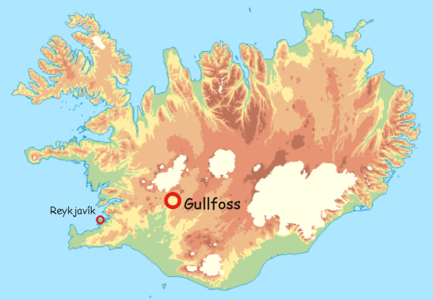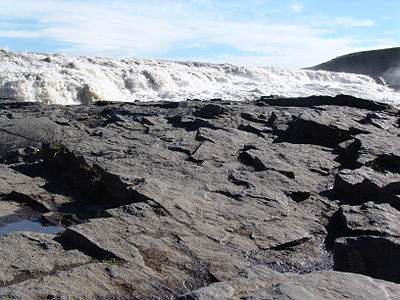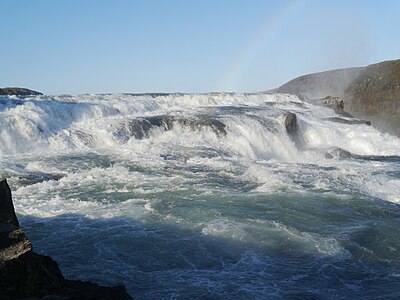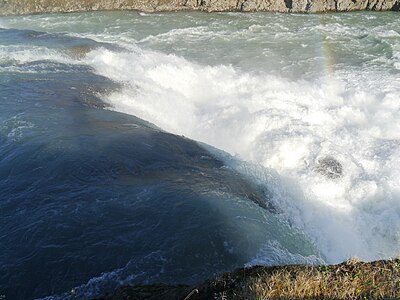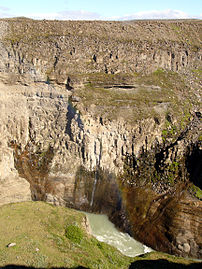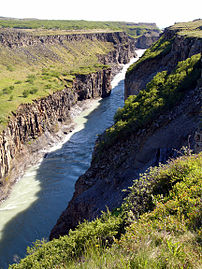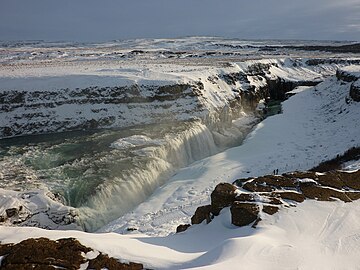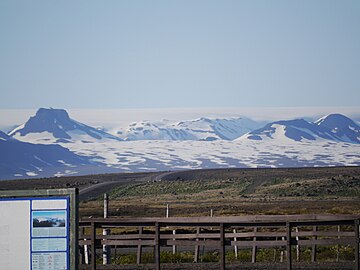Gullfoss
Pronunciation of the name of Gullfoss
[edit]Location of Gullfoss
[edit]The waterfall is situated at the southern end of Kjölur highland road, and not far from one of the biggest ice caps of Iceland, Langjökull.
-
Localisation of Gullfoss
-
Kjölur highland road
Panoramics of Gullfoss
[edit]The waterfall has two steps, about 10 m and about 20m high each, over which the waters tumble down into the over 70 m deep canyon of Hvítárgljúfur.
-
The waterfall seen from the view point next to the coffeeshop
-
The walls of the canyon consist mainly of lava.
Upstream impressions of the river Hvítá
[edit]-
Rapids in the river Hvítá upstream of the waterfall
The upper part of Gullfoss
[edit]An erosional step of 11 m.
Impressions of both parts of the waterfall
[edit]The two steps form an angle of about 90°. Faults and contrasting lithologies determine the form of the falls. There is a sequence of two different lava formations alternating with sediments around and under Gullfoss and Hvítárgljúfur.
The lower part of Gullfoss
[edit]A 21 m step.
-
This could be a small jökulhlaup: Compare the volume of water and the water colours, they show an increase in sediment load.
Hvítárgljúfur, the canyon
[edit]It has a length of 2,5 km and a depth of about 70 m. At the same time, the canyon is in line with a tectonic fault beneath the valley.
-
Seen from direction of Brattahlíd
-
Many different lava flows built the walls of this canyon.
-
The walls of Hvítárgljúfur
Gullfoss in the winter time
[edit]-
Hvítárgljúfur in the winter time
Highland of Iceland, seen from Gullfoss
[edit]Most part of the waters of Hvítá is glacial meltwater from Langjökull and Hofsjökull. The highland and the glaciers can be seen from the waterfall.
-
Gullfoss in April, in Iceland still winter time; view of the waterfall and the highland in direction of the mountain Bláfell and the mountain range of Kerlingarfjöll and Hofsjökull
-
The same view in July
-
The mountain Bláfell, former home of a troll
-
Zoomed view of ice cap w:Langjökull and its volcanic mountains from the parking lot in front of Gullfoss coffeshop
